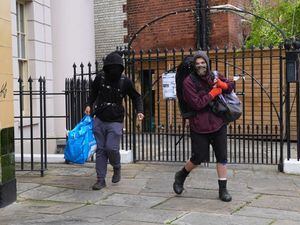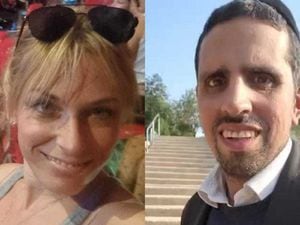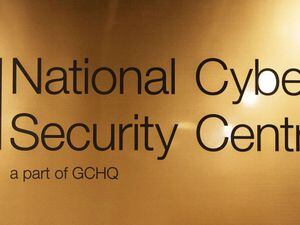Children’s hospital ‘not fit for purpose’, says relative of young cancer patient
The Scottish Hospital Inquiry in Edinburgh is chaired by Lord Brodie.

A family member of a young cancer patient receiving treatment at a children’s hospital said the building “was not fit for purpose”.
The witness, who asked to remain anonymous, spent time at the Royal Children’s Hospital (RHC) and the Queen Elizabeth University Hospital (QEUH) campus in Glasgow after their relative was diagnosed with leukaemia.
In a statement to the Scottish Hospitals Inquiry on Tuesday, the witness said during the relative’s cancer treatment QEUH’s “ceilings were collapsing” and “there were leaks everywhere”.
The inquiry heard that rooms where young cancer patients were being treated were “absolutely roasting” and the smell of sewage coming from outside the building was “overwhelming”.
The inquiry was ordered after patients at the Glasgow hospitals died from infections linked to pigeon droppings and water supplies.
NHS Lothian’s Department of Clinical Neurosciences in Edinburgh is also being investigated after its opening was delayed due to concerns about the building’s ventilation system.
Referencing QEUH, the witness said: “Everything that I witnessed when I was in that building makes me say that corners were cut when it was being built.
“Take the issue with the pigeons. How did the pigeons manage to get into a loft space to do their droppings into the ventilation system?
“There was also a panel missing.
“On one occasion one of the big panels had fallen off and crashed to the floor. It’s lucky nobody was hurt, to be honest, because if that had hit somebody, they would have been dead.”
The witness also questioned why the Glasgow hospitals were built near a sewage works, adding: “In the summer when it was absolutely roasting, that smell of that sewer was absolutely stinking.
“The smell was so bad in the building too.”
Earlier this year, an independent review found the deaths of two children at the QEUH campus were at least in part the result of infections linked to the hospital environment.
The witness said a case note review confirmed their relative contracted an infection from the hospital water supply.
They said hospital-acquired infections meant their family member’s life-saving chemotherapy was delayed multiple times.
The witness said: “She breezed every single chemo treatment, but all these infections made her unwell.”
In a concluding statement the witness said: “We thought she was in a place where she only had to fight the cancer, not fight infections given to her by the place where she was being treated.
“The cancer had to be fought.
“She wasn’t there to fight illnesses given to her by the water.
“The emotional impact on our family is caused by (relative) having cancer. But the impact of her having all these infections from a place that wasn’t fit for purpose made her life harder than it had to be.”
The inquiry in Edinburgh, chaired by Lord Brodie, continues.
Health boards are due to give evidence at a later stage.





